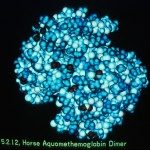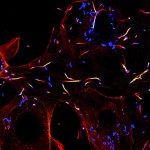Link to Pubmed [PMID] – 35503254
Link to DOI – 10.1172/JCI153580
J Clin Invest 2022 May; ():
The major therapeutic goal for immune thrombocytopenia (ITP) is to restore normal platelet counts using drugs to promote platelet production or by interfering with mechanisms responsible for platelet destruction. 80% of patients possess anti-integrin αIIbβ3 (GPIIbIIIa) IgG autoantibodies causing platelet opsonization and phagocytosis. The spleen is considered the primary site of autoantibody production by autoreactive B cells and platelet destruction. The immediate failure in ~50% of patients to recover a normal platelet count after anti-CD20 Rituximab-mediated B cell depletion and splenectomy suggest that autoreactive, rituximab-resistant, IgG-secreting B cells (IgG-SC) reside in other anatomical compartments. We analyzed >3,300 single IgG-SC from spleen, bone marrow and/or blood of 27 patients with ITP revealing high inter-individual variability in affinity for GPIIbIIIa with variations over 3 logs. IgG-SC dissemination and range of affinities were however similar per patient. Longitudinal analysis of autoreactive IgG-SC upon treatment with anti-CD38 mAb daratumumab demonstrated variable outcomes, from complete remission to failure with persistence of high-affinity anti-GPIIbIIIa IgG-SC in the bone marrow. This study demonstrates the existence and dissemination of high-affinity autoreactive plasma cells in multiple anatomical compartments of patients with ITP that may cause the failure of current therapies.








